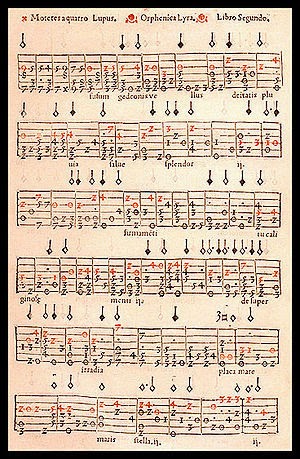String Thickness or Gauges
Most electric guitars you pick up in a store will have 9's on them. That number refers to the thickness of the 1st string (.009 of an inch) and is a good place for beginners to start. As you improve you might try 10's or 11's for a bigger tone or a firmer feel. I use 10's for their fairly light tension, bold tone and responsiveness when I dig in with more aggressive picking.
Most acoustic guitars are strung with gauge 12's. This thickness of string is a nice balance between playability, durability, and general wear and tear on the guitar. Lighter strings will give you easier playability but less durability and might promote more buzzing on the guitar. Heavier strings will create better tone and durability but will tougher to play. Again, it's about trying different scenarios out to get a feel for what feels best for your fingers and your style of play.
Type or Style of Strings
This area is a where most players experiment and try different things. Different string options like round-wound, flat-wound, hexegon-core, gortex coating, and all the different type of metals used in the construction of strings can create subtle nuances for an individual players sound and can be frequently changed to add a fresh sound or unique tone to update and refresh you're style. Many higher end guitars like Taylors, Larivees, Collings', Goodalls and Santa Cruz's are fitted with Elixer Phosphor Bronze lights on all the guitars they sell. They last incredibly long: so long that at twice the price of a regular pack of strings, your string budget will actually go down.
String Brands
 I use D'Addarrio NYXL 10's on my electrics and Elixer Phosphor Bronze lights on my acoustics. The D'Addarrio NYXL's are more expensive than other electric strings but they add more punch, volume, and stay in better tune than any other string that I have tried. On acoustic guitar, I avoided Elixer strings for years because I thought the idea of a gortex coating on acoustic strings was unmusical but I have since been pulled over to using them. They are double the price of regular acoustic strings but last 3 - 4 times as long and have consistently good tone and presence throughout their time on the guitar.
I use D'Addarrio NYXL 10's on my electrics and Elixer Phosphor Bronze lights on my acoustics. The D'Addarrio NYXL's are more expensive than other electric strings but they add more punch, volume, and stay in better tune than any other string that I have tried. On acoustic guitar, I avoided Elixer strings for years because I thought the idea of a gortex coating on acoustic strings was unmusical but I have since been pulled over to using them. They are double the price of regular acoustic strings but last 3 - 4 times as long and have consistently good tone and presence throughout their time on the guitar.Good Brand to choose from:
Some good brand choices for acoustic and electric strings are: D'Addario, Martin, Ernie Ball, Dean Markley, Elixer, GHS, and DR. They can be found easily in most local music stores.
“The guitar is a small orchestra. It is polyphonic. Every string is a different color, a different voice.”
- Andre Segovia



